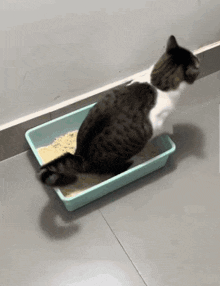Time management - it's a crucial skill we all require in our lives, especially when transitioning into that bizarre place we all know as high school. Time management is everyone's friend when it comes to facing the piles of increasing work on our desks and the pressure of deadlines and expectations that - let's be honest - are responsible for the countless breakdowns many of us experience during our high school years.
Prioritizing our ability to manage our time efficiently is one way we as students can ensure we achieve optimal results. And as teens who are eager to experience the world and extend our knowledge of a variety of concepts (in short, we have a life outside of school), we need to have time for everything in between. Lucky for us, there's a way to do that.
So, here are a few ways you can manage your time!
Let us slide into your dms 🥰
Get notified of top trending articles like this one every week! (we won't spam you)Avoid Multi-Tasking


Most of the time, without even realizing so. However, while multitasking may prove useful in circumstances where you may need to take down notes during a lecture or prepare multiple dishes simultaneously, studies have shown that when our brain is constantly switching gears to bounce back and forth between tasks, we become less efficient and are more likely to make a mistake.
This may not seem like such a bad thing when doing tasks that are as simple as listening to music while walking, or folding laundry while watching TV. But when it comes to complex tasks that require continuous and active attention, trying to multitask can negatively impact our lives - or even be dangerous (for example, driving a car and being on your phone at the same time).
Additionally, multitasking can affect our ability to learn efficiently, because to learn, we need to (surprise, surprise) be completely attentive and focussed. So, instead, opting to focus on one task at a time can benefit many aspects of our life.
But how do we do so when we've got a heaping pile of work and so little time to complete it all? One word - prioritise.
Take the Quiz: What Type of Notes Should I Take?
Discover the best note-taking method for your learning style!
Focus on Priorities

The tip here is to focus on what's important, not just on what's urgent. A common struggle for many people is that as they get older and become occupied with a variety of complex and laborious tasks, they become overwhelmed trying to do everything all at once and experience difficulties prioritizing the most important things on their to-do lists. Without a process for prioritizing tasks - whether it be high school or university - it always feels like we're running an endless marathon.
However, there are four easy steps you can take to increase productivity and ensure you make the best of the time you've got:
Prioritizing Your Tasks In Four Easy Steps
1. Create a task list: Take a few minutes to sit down and create a list of everything you need to work on. Once your tasks are listed, add additional information about the task (for example, how long it may take to complete or its due date). This will allow you to have an overall view of everything that needs to be done and inform you about tasks that will need more time and attention.
2. Adopt a task prioritization method: You can opt to organize your tasks into four quadrants (Important, Urgent, Important and Urgent, and Neither) or assign each task a letter value according to its level of importance (A task's being a top priority, E tasks being low priority). There are a variety of other ways you can go about organizing your work into smaller categories.
3. Use a calendar tool to schedule your tasks: Once you have your list and your tasks organized into the most important and least important, pop them into a calendar so you can keep track of their due dates and have a visual representation set out for yourself. This will help you manage your workload and create a better balance in your work completion.
4. Allocate time for each task: Set times for each task based on your 'productivity hours'. Those are times when you're naturally productive and more likely to complete work without too much effort required to do so.
Try finding your peak productivity times, then schedule your highest priorities during them. Soon, you'll be well on your way to having a successful, productive day.
Plan Your Schedule Around Your Attention Span

No matter what task is at hand, a short attention span can be deeply problematic. It prevents us from being as efficient, as productive or as judicious with our time as we can be; making even the shortest of tasks take forever. This is why it is important to identify the times when we're at peak alertness and make an effort to work on important tasks then. By doing so, we notice the order of tasks that work for us as individuals, and in turn, make it easier to schedule them according to our attention span.
For example, if you're a morning person, you should aim to do the majority of your analytical work early in the morning, and then focus on nonlinear thinking activities in the afternoon (creative works) when you see your mind beginning to drift off. If you're more of a night owl, you might be better off working on creative projects or less laborious tasks during the morning. Later, shift your focus to more analytical tasks during the afternoon and evening hours when your productivity and focus levels are at their highest.
However, while scheduling work around your times of peak alertness will enable you to work with minimal distractions and work more productively, it is important to keep in mind that humans in general have short attention spans. So don't feel bad if you require a few, quick five-minute breaks now and then, because really, it'll just help you return to your work sharper and more creative.
Don't Be Afraid To Say No

One of the most important time management tips involves simply knowing when to say 'NO'. We only have so much energy in a day, and it wanes with the hours. Saying 'no' is not selfish or rude.
It is sometimes essential for proper time management and ensuring you don't get overwhelmed or worse - burnt out. That would only lead to another common issue - procrastination - which we are trying to avoid here! Learning to say 'no' when appropriate, will assist you in avoiding such issues and, instead, will enable you to manage your time better, allow you more time to focus on important tasks, be more productive and stay mentally and physically healthy.
Plan Your Activities So That They Get Done Earlier Than The Deadline

Targeting getting work done a week or two before the deadline is always a great way to avoid unnecessary stress. Essentially, staying ahead of deadlines is key to making deadlines. This is particularly useful when working on written assignments.
As many of us would know from writing essays and reports for school assessments, creating a well-written piece calls for a lot of time spent on editing and constantly improving the quality of our writing. In such cases, aiming to complete an assignment before the official deadline leaves plenty of time to review, receive feedback from peers and ensure all necessary criteria have been met.
Reward Yourself
Giving yourself some sort of incentive is a great and effective motivator to keep at your goals. It'll keep you engaged and minimise the chances of distraction or laziness. When it comes to time management skills, these rewards can be as simple as setting some time aside to read a favourite book of yours, indulging in a favoured dessert or meal, or even taking yourself somewhere nice (like the beach) after a long day of productivity and work. Nice and simple... and just enough to keep you going :)
For many, time management continues to remain a challenging task. However, by incorporating time management and organizational strategies like the ones addressed above, students can make a change in their work habits and increase their overall productivity in the time they have. Every individual has a different way of learning and dealing with increased workloads, so it is just a matter of patience to figure out what works for you and create a work schedule you can stick to.
Because, in the end, consistency is always the key to success.








.jpg)









